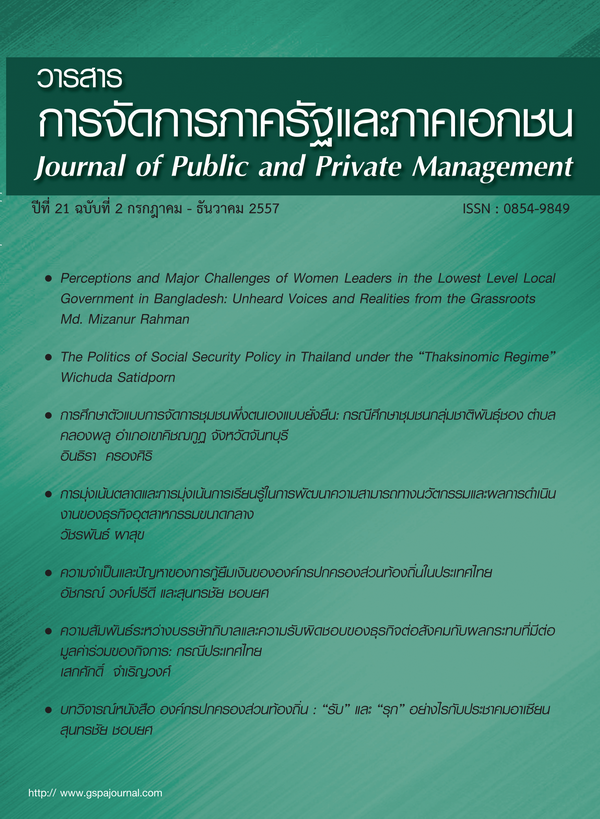The Politics of Social Security Policy in Thailand under the “Thaksinomic Regime”
Keywords:
Social security policy, Social security system, Thaksin government, Labor movementAbstract
The entry to power of Thaksin and the Thai Rak Thai (TRT) party has created a major change in the politics of Thailand. This article focuses on the changes and continuities of social security policy in Thailand under the Thaksin government (2001-2006). The major attempt made in this article is to explain why ideas aiming to revise Thailand’s 1990 Social Security Act appeared in the Thaksin period, discuss key problems about social security that were revised, the methods used in the revision process, and key actors making changes realized. Relying on qualitative research methods and theoretical approach that views social security policy as the outcomes of both internal factor, political contestation among various groups and interests and external factor, neo-liberal globalization, this article argues that there are three main reasons made the revisions and expansions of social security system occurred during the period of Thaksin government: (1) the goal of the Thaksin and his TRT party to win the election and maintain their popularity; (2) the rise concerns of policy experts and private company owners about a viable of the system in crisis times and its insufficient for the longer-term needs of the population; (3) the continual movements of various labor groups aiming to persuade the government and government officers to support their requests to reform and improve the social security system. Based on the aforementioned findings, this paper concludes that changes in social security policy during the Thaksin period were the outcomes of political contestation among various groups and interests in Thai society, including various labour groups, business owners, technocrats, policy makers, and political elites. These competing groups and interests used different strategies in their attempt to access and use the powers of the state.



